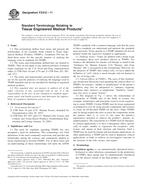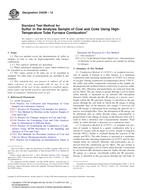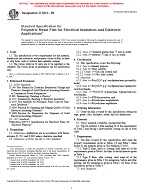1.1 This test method covers the determination of pour point of petroleum products by an automatic instrument that continuously rotates the test specimen against a suspended detection device during cooling of the test specimen.
1.2 This test method is designed to cover the range of temperatures from -57 to + 51°C; however, the range of temperatures included in the 1992 interlaboratory program only covered the temperature range of -39 to + 6°C (see 13.4).
1.3 This test method determines the no-flow point of petroleum products by detection of the crystal structure or viscosity increase, or both, in the sample that is sufficient to impede flow of the specimen.
1.4 This test method is not intended for use with crude oils.
Note 1 – The applicability of this test method on residual fuel samples has not been verified. For further information on applicability, refer to .
1.5 The values stated in inch-pound units are to be regarded as the standard. The values given in parentheses are for information only.
1.6 This standard does not purport to address all of the safety concerns, if any, associated with its use. It is the responsibility of the user of this standard to establish appropriate safety and health practices and determine the applicability of regulatory limitations prior to use.
Product Details
- Published:
- 01/10/2002
- Number of Pages:
- 5
- File Size:
- 1 file , 70 KB
- Redline File Size:
- 2 files , 140 KB


